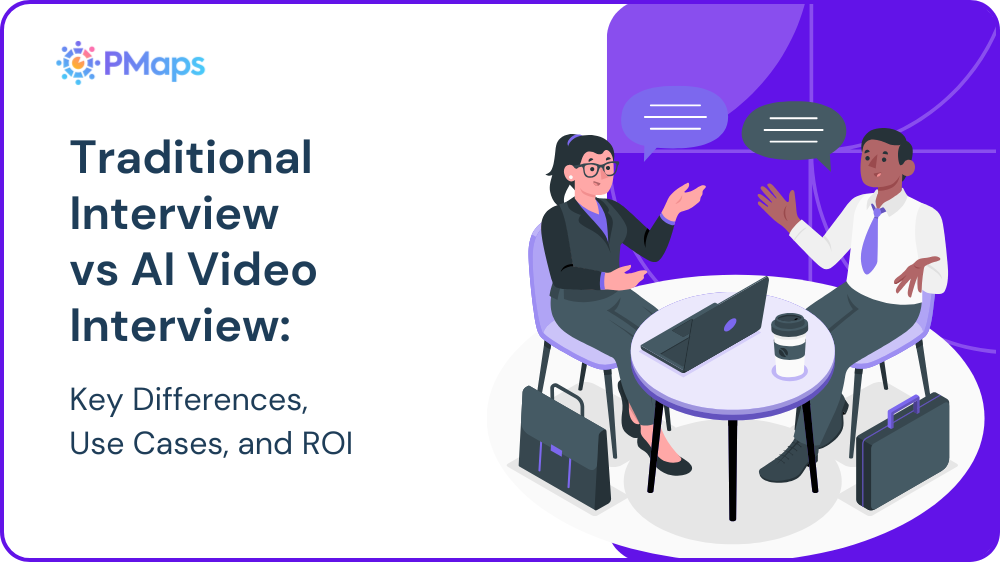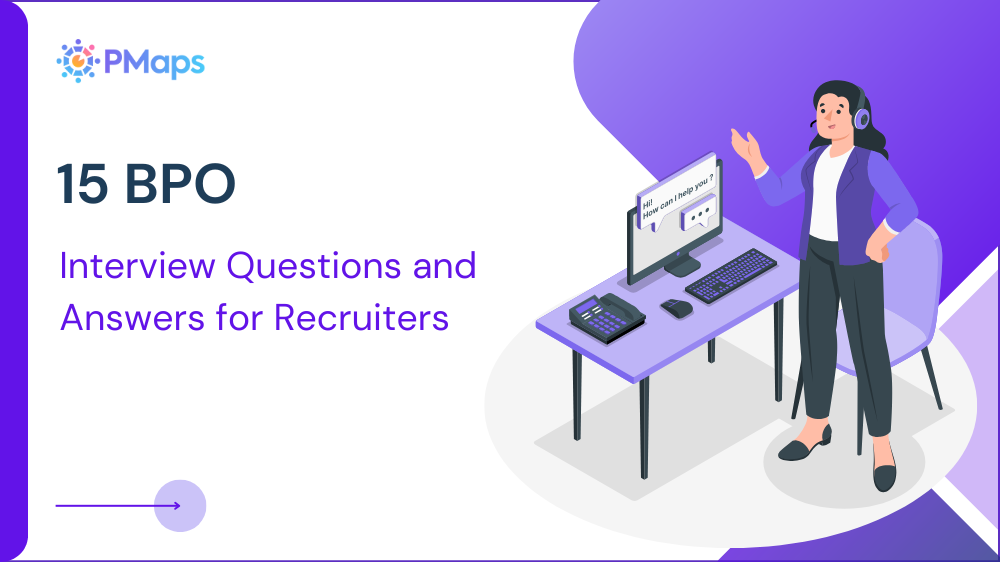
For decades, traditional interviews have shaped hiring decisions through in-person or live virtual interactions. But as hiring scales, timelines shorten, and talent pools widen, recruiters now face a new reality: adapt or fall behind. With the emergence of AI interview software vs traditional interview methods, hiring has entered a new era of structure, speed, and scale.
In this blog, we compare the difference between traditional and AI video interviews, break down use cases, and explore the impact of each on recruiter workload, candidate experience, and ROI. Whether you're scaling fast or refining executive hiring, knowing when and how to use each method is key.
What is a Traditional Interview?
A traditional interview is a live, recruiter-led conversation conducted in person, over the phone, or via video call. These interviews are typically unstructured or semi-structured and rely heavily on human judgment. While they allow for real-time engagement and spontaneous dialogue, they can also be time-consuming, inconsistent, and prone to unconscious bias.
Pros:
- Strong rapport and interpersonal insight
- Better suited for leadership and creative roles
Cons:
- Recruiter workload is high due to manual scheduling and evaluation
- Susceptible to bias in recruitment
- Not scalable in high-volume settings
What is an AI Video Interview?
An AI video interview allows candidates to record responses to pre-set questions. These responses are then assessed by algorithms that analyze tone, content, facial cues, and more. Some formats are asynchronous video interviews (one-way), while others are live but supported by automated interview screening tools in real-time.
Pros:
- Enables scalable hiring solutions
- Structured and bias-mitigated evaluations
- Instant candidate evaluation reports and interview analytics
Cons:
- Can trigger candidate anxiety
- Needs clear compliance & data privacy protocols (GDPR, EEOC)
Traditional Interview vs AI Video Interview: Key Differences
To make informed decisions, recruiters need a clear comparison between traditional interviews and AI video formats. Evaluating them side by side helps identify which method aligns best with hiring goals, candidate volume, and the level of structure required.
Best Hybrid Approach: Combining Traditional and AI Interviews
While both methods have distinct strengths, the most effective hiring strategy often lies in combining them. A hybrid approach lets recruiters scale initial screenings using AI while preserving the human element where it matters most—during final candidate evaluation.
Here’s how a hybrid interview process typically works:
- Initial Screening with AI Video Interviews: Use automated platforms to evaluate large candidate pools quickly and consistently, saving recruiter time.
- Shortlisting Based on Behavioral Insights: Leverage candidate evaluation reports and interview scoring algorithms to identify top performers.
- Final Rounds with Traditional Interviews: Conduct live, human-led sessions to assess cultural fit, communication style, and role alignment.
ROI: Traditional vs AI Video Interviews
Understanding the return on investment is essential when comparing traditional vs AI video interviews. Looking beyond process speed, the ROI reveals how each method impacts recruiter efficiency, hiring costs, and overall scalability. The table below unveils the clear view for you:
Future of Interviewing in Recruitment
As hiring strategies continue to evolve, the future of interviewing will be shaped by both technological advancements and shifting candidate expectations. Recognizing emerging trends helps recruiters stay ahead. Key trends shaping the future are:
- Growing demand for explainable AI that supports transparency and trust.
- Candidates now expect flexible options via digital interview platforms.
- Traditional interviews will remain critical for final-stage evaluations.
Conclusion
There’s no one-size-fits-all in the debate between traditional interviews and AI video interviews. Each serves a purpose—AI for scalable, structured screening; traditional for in-depth, human-led evaluation. The most effective strategy is a hybrid model that blends both approaches to balance speed with insight.
Recruiters save time without losing control over critical decisions. If you're ready to modernize your hiring process, PMaps offers flexible solutions that support both AI-powered and human-led interviews. Reach out at 8591320212 or email assessment@pmaps.in to explore how we can help streamline your recruitment without compromising on quality.






